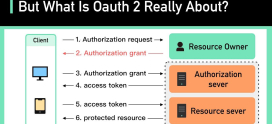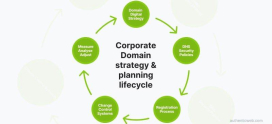
How to Use Free SSL to Build Trust in Your Personal Brand
Have you ever visited a website that made you feel uneasy or unsafe? You know, those sites that give off a sketchy vibe? In today’s digital age, trust is key—especially if you’re trying to build a personal brand. The internet can feel like a wild west of information and misinformation, and everyone is struggling to figure out whom to trust. You’re not alone if you’re worried about how to convey credibility online. Fortunately, there’s a straightforward solution to boost your trustworthiness: Free SSL certificates.
Using SSL (Secure Socket Layer) certificates can significantly impact how potential clients and followers perceive you. By encrypting the data transmitted on your website, you can create a secure environment that puts visitors at ease. No one wants to share personal information on an unsecured site! With that said, let’s explore how you can use free SSL to build trust in your personal brand and elevate your online presence effectively.
What is SSL and Why Does It Matter?
Before diving into the ‘how’, let’s clarify what SSL is. Imagine SSL as a secure vault. When someone visits your website, that vault protects their data from prying eyes. The presence of SSL gives users confidence that their information is shielded from potential threats—think of it as a safety net.
Having an SSL certificate is essential not just for protection but also for enhancing your brand. It communicates to your audience that you take their security seriously, which is a vital component of credibility. Did you know that Google prioritizes secure sites in search rankings? That’s right! If you’re vying for search visibility, SSL can even benefit your SEO efforts. Now, let’s look at how to implement free SSL for maximum impact.
How to Obtain Free SSL Certificates
Choose a Reputable Hosting Provider
Your first step in acquiring a free SSL certificate is selecting a trustworthy hosting provider. Companies like DarazHost offer free SSL with their hosting packages. When you sign up for an account, they often provide a one-click SSL installation. This means you won’t need to wrestle with complicated technical hurdles!
Utilizing Let’s Encrypt
Another fantastic resource is Let’s Encrypt, a free, automated method for getting SSL certificates. If your hosting provider supports Let’s Encrypt, installing the certificate is usually a breeze. It’s like getting a key to that secure vault we talked about earlier. What’s even cooler? Let’s Encrypt renews your certificate automatically, so you won’t have to worry about it expiring.
Implementing SSL on Your Website
Once you have your SSL certificate, the next step is to implement it on your site. This may vary slightly depending on your hosting provider.
Redirect HTTP to HTTPS
Make sure that your visitors are always directed to the secure version of your site. You can do this by implementing a redirect from HTTP to HTTPS. This ensures that no matter how someone tries to access your site, they’ll always land on the secure version. Picture it like having a doorman who only allows guests into the safe areas, treating every visitor as a VIP!
Test Your SSL Certificate
Testing your SSL certificate is crucial. Use online tools like SSL Labs to assess whether everything is set up correctly. If there are any issues, you want to catch them early, just like you’d want to fix any leaks in your safety net before guests arrive.
Building Trust Through Transparency
Adding SSL to your website is a fantastic move, but it isn’t the only way to build trust. Transparency is key! Be open about your procedures, tell your audience what you do with their information, and provide contact details for them to reach out if they have any concerns.
Show Off Your SSL Badge
Once your site is secured with SSL, show it off! Display the padlock icon prominently. It’s like wearing a badge of honor. When people see that you’re invested in their safety, they are more likely to engage with your brand. Small touches like this can create a feeling of reassurance that resonates with your audience.
Using Content to Build Credibility
Your website isn’t just a platform for displaying your work; it’s also a channel for sharing your knowledge and insights. Creating valuable content can establish you as an authority in your field and help build trust further.
Share Testimonials and Case Studies
Nothing says “I’m credible” like testimonials from happy clients. Incorporating case studies showing how you’ve helped others can also elevate your brand. Potential clients see the real-world application of your services and can visualize their success through you.
Engage in Social Proof
Don’t underestimate the power of social media and online reviews. When people see others engaging with your brand, it creates a ripple effect. They’re not just trusting you; they trust others who are already satisfied customers. This is like a group of friends recommending a trendy café—if everyone’s talking about it, they likely believe it’s worth checking out!
Maintaining Your Trusted Status
Having SSL and creating great content is just part of the equation. You must continue to nurture the trust you’ve built over time.
Regularly Update Your Website
A stale website can scream “neglect,” so keep your content fresh and relevant. Regular updates not only help with SEO but also signal to your audience that you’re active and engaged. Think of it like watering a plant; with regular care, it continues to grow and thrive.
Provide Outstanding Customer Support
Image being in a restaurant where the staff goes above and beyond to handle your requests. That kind of experience stays with you, right? The same applies to your brand. Make sure you have responsive customer support, engage with your visitors, and address their concerns with a proactive attitude.
FAQs
What is an SSL certificate?
An SSL certificate is a digital certificate that authenticates the identity of a website and enables an encrypted connection. It ensures that any data transferred between the user’s browser and the website remains private and secure.
How do I know if my website has SSL?
Look for a padlock icon next to your website’s URL in the browser’s address bar. This indicates that your site is secure. Additionally, the URL should start with “https://” rather than “http://”.
Can I get a free SSL certificate?
Yes! There are multiple options for obtaining free SSL certificates, including providers like DarazHost and Let’s Encrypt. Many reputable hosting services also include free SSL in their packages.
Why is SSL important for my personal brand?
SSL establishes trust and indicates that you value your audience’s security. It enhances your credibility and is vital for improving search engine rankings, thereby attracting more visitors to your site.
What happens if I don’t use SSL on my website?
If you don’t use SSL, your website may be flagged as “not secure” by browsers, which can deter users from engaging with your content. Additionally, your search rankings may suffer, negatively affecting traffic.
How long do SSL certificates last?
Free SSL certificates like those from Let’s Encrypt typically last for 90 days, but they can be renewed automatically. Other types of SSL certificates can last for up to two years depending on the provider.
Can I install SSL by myself?
Yes, you can install SSL by yourself, especially if your hosting provider offers a straightforward installation process. Many providers have user-friendly interfaces or one-click installations that simplify the process, making it possible even for those with minimal technical knowledge.
investing in a free SSL certificate is a simple yet powerful step toward building trust and enhancing the credibility of your personal brand online. By securing your website, you not only protect your visitors but also invite them to engage with your content and services with confidence. Remember, a trustworthy online presence is foundational in today’s digital landscape. Start by securing your site, and watch how it positively impacts your audience’s perception and your overall brand reputation!









